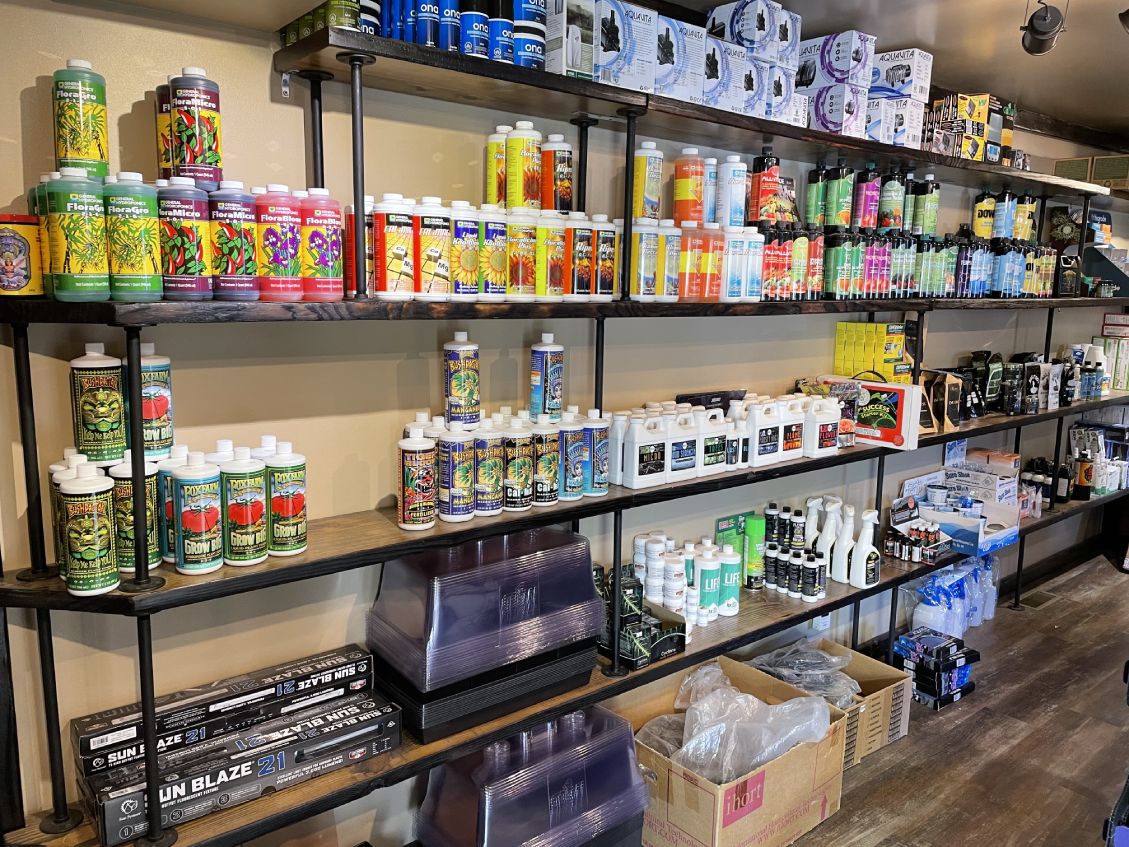Dive Into the Globe of Hydroponics: Exploring Various Types
Within the realm of hydroponics exists a varied array of cultivation techniques that provide distinct advantages for expanding plants without dirt. As we start this exploration of numerous hydroponic systems, we will certainly reveal the intricacies of techniques like the Nutrient Film Method (NFT), Deep Water Culture (DWC), Wick System, Ups And Downs (Flooding and Drainpipe), and Aeroponics. Each approach provides an unique approach to nurturing plants in a soil-less atmosphere, encouraging technology and effectiveness in the world of modern-day agriculture.

The Nutrient Film Method (NFT)
The Nutrient Movie Technique (NFT) is a hydroponic system that entails a continual circulation of nutrient remedy over plant origins in a slim film to promote reliable nutrient uptake. This approach utilizes a superficial stream of water which contains dissolved nutrients, permitting the plant origins to have continuous access to the required aspects for development - The Indoor Earthworm. The nutrient service flows along all-time low of the channel, getting in touch with the roots and afterwards receding, giving a very oxygenated atmosphere vital for origin health and wellness
Because the nutrient remedy is recirculated, it needs much less water contrasted to traditional soil-based horticulture. Additionally, the controlled setting of the NFT system minimizes the danger of nutrient inequalities and diseases, leading to much healthier plants.
Deep Water Culture (DWC)
Amongst the numerous hydroponic systems utilized for cultivating plants, Deep Water Society (DWC) sticks out for its simple yet reliable design. In a DWC system, plants are positioned in internet pots, allowing their origins to dangle straight into a nutrient option. This remedy is oxygenated utilizing air pumps and air rocks to make sure that origins get a sufficient oxygen supply. The trick to success in DWC is keeping the proper oxygen levels in the nutrient option to avoid root rot and promote healthy plant growth.
In addition, the straight accessibility to oxygen and nutrients allows plants to uptake what they require extra effectively, frequently resulting in faster development rates and greater yields contrasted to conventional soil cultivation methods. Managing water temperature level and preventing algae development in the nutrient remedy are essential considerations when carrying out a DWC system.
Wick System
In hydroponic growing, the Wick System is a passive technique that enables plants to formulate nutrition service with capillary activity. This system is ideal and uncomplicated for novices due to its simplicity. It includes a growing tray filled with an inert medium like perlite or vermiculite, where plants are placed. A wick, usually made of products like cotton or nylon, expands from the growing tray into a storage tank loaded with the nutrient solution. The capillary action of the wick permits the nutrient solution to move from the tank to the expanding tray, ensuring a constant supply of nutrients to the plants' roots. Among the advantages of the Wick System is its affordable and ease of configuration. Nonetheless, it may not be appropriate for larger plants or those with high nutrient needs, as the easy nature of the system can lead to uneven vitamins and mineral circulation. On the whole, the Wick System supplies a simple and reliable way to exercise hydroponic gardening.
Ups And Downs (Flooding and Drainpipe)
Checking Out the Ebb and Flow (Flood and Drain) system provides understanding right into a vibrant hydroponic technique that rotates in between flooding and draining pipes the plant roots with nutrient remedy. This system operates by regularly swamping the plant containers with a nutrient remedy from a storage tank and then allowing the excess service to drain pipes back. The procedure is usually controlled by a timer to ensure normal flooding cycles, offering the origins with oxygen as the service recedes.
Ups and downs systems are versatile and can suit different plant sizes and types. They offer a good balance of water retention and aeration, promoting healthy and balanced root advancement. The periodic flooding aids deliver nutrients directly to the origins, boosting nutrient uptake performance. Additionally, the ebb and flow activity protects against water torpidity, minimizing the risk of origin rot and other water-related concerns.
This technique is popular among hydroponic fanatics for its effectiveness, simpleness, and flexibility to various plant requirements. With appropriate tracking and upkeep, the Ups and downs system can support durable plant development in a controlled hydroponic atmosphere.
Aeroponics
Using a high-pressure misting system, Aeroponics is an innovative hydroponic approach that puts on hold plant roots in an oxygen-rich environment Related Site to advertise optimal nutrient absorption and strenuous growth. Unlike other hydroponic techniques, which submerge roots in water or a nutrient option, Aeroponics supplies nutrients straight to the roots via a fine mist. This mist is sprayed at routine periods, making certain that the roots receive a constant supply of water, oxygen, and nutrients.

Among the essential advantages of Aeroponics is its capability to optimize nutrient uptake while reducing water use. By delivering nutrients straight to the origins, news plants can absorb them a lot more effectively, leading to faster growth prices and higher returns. In addition, the oxygen-rich atmosphere developed by the misting system stimulates origin development and assists protect against root conditions.
Aeroponics is particularly well-suited for expanding leafed eco-friendlies, see it here natural herbs, and various other plants that flourish in oxygenated environments. The Indoor Earthworm. Its efficient use resources and ability to advertise fast growth make it a preferred option for hydroponic enthusiasts wanting to accomplish optimum results
Conclusion
Finally, hydroponics provides a series of ingenious strategies for growing plants without soil. From the nutrient film technique to deep water culture, each technique has its own advantages and difficulties. By comprehending and making use of these different kinds of hydroponic systems, individuals can discover new possibilities for lasting agriculture and make best use of plant growth in regulated settings.

Comments on “Elevate Your Gardening Video Game: Introduction The Indoor Earthworm Growing Process”